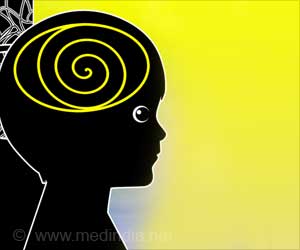Children with intellectual difficulty or autism are more prone to Depression and Injury, finds a new study.
Highlights
- Children with intellectual difficulty or autism are more likely to have higher rates of hospitalization for depression and for injury.
- Depression and injury related hospitalizations are because they are given anti psychotic medication from a younger age.
- Treating behavioral problems in this way can lead to increased costs to the NHS in terms of higher epilepsy, respiratory infection rates which are a some of the side effects of the anti psychotic drugs.
The study included antipsychotics medications that are commonly used in the NHS. They examined hospital, general practitioner and educational records of 3028 young people who had been prescribed an antipsychotic.
Results of the study
They also found that children who had an intellectual problem or autism were more likely to be given an anti psychotic.
They found that
They found that nearly 50% of those with intellectual problems or autism had more than 12 prescriptions to their name when compared to 25% of those without any intellectual problems or autism.
For young people who did not have intellectual disability or autism, there were lower rates of depression and injury after the antipsychotic, but for those with autism or intellectual disability, there were higher rates of being hospitalized for depression and for injury.
The Antipsychotic medications have been found to be associated with increasing seizures in those who have had epilepsy and in some people they have been associated with weight gain, potential diabetes, reducing swallowing and also leaving people open to respiratory infections.
Higher rates of epilepsy, diabetes and respiratory infection requiring hospital admission were observed in kids with and without autism or intellectual disability when compared to rates before being prescribed antipsychotics and compared to those, not on antipsychotics.
Professor Brophy said: "Our research suggests that young people with intellectual difficulty or autism are more like to be prescribed antipsychotic medication than those with a psychotic diagnosis and are prescribed this medication at a younger age and for a longer period.
"Treating behavioral problems in this way can lead to increased costs to the NHS in terms of higher epilepsy, respiratory infection, diabetes, depression, and injury all requiring more visits to the GP and hospital. In addition, treating behavioral problems in this way can have long-term health implications for the individual and for those who care for them," said Professor Brophy.
Reference
- Brophy Sinead , Kennedy Jonathan , Fernandez-Gutierrez Fabiola , John Ann , Potter Robert , Linehan Christine , Kerr Michael.Characteristics of Children Prescribed Antipsychotics: Analysis of Routinely Collected Data, Journal of Child and Adolescent Psychopharmacology (2018).https://doi.org/10.1089/cap.2017.0003
Source-Medindia















